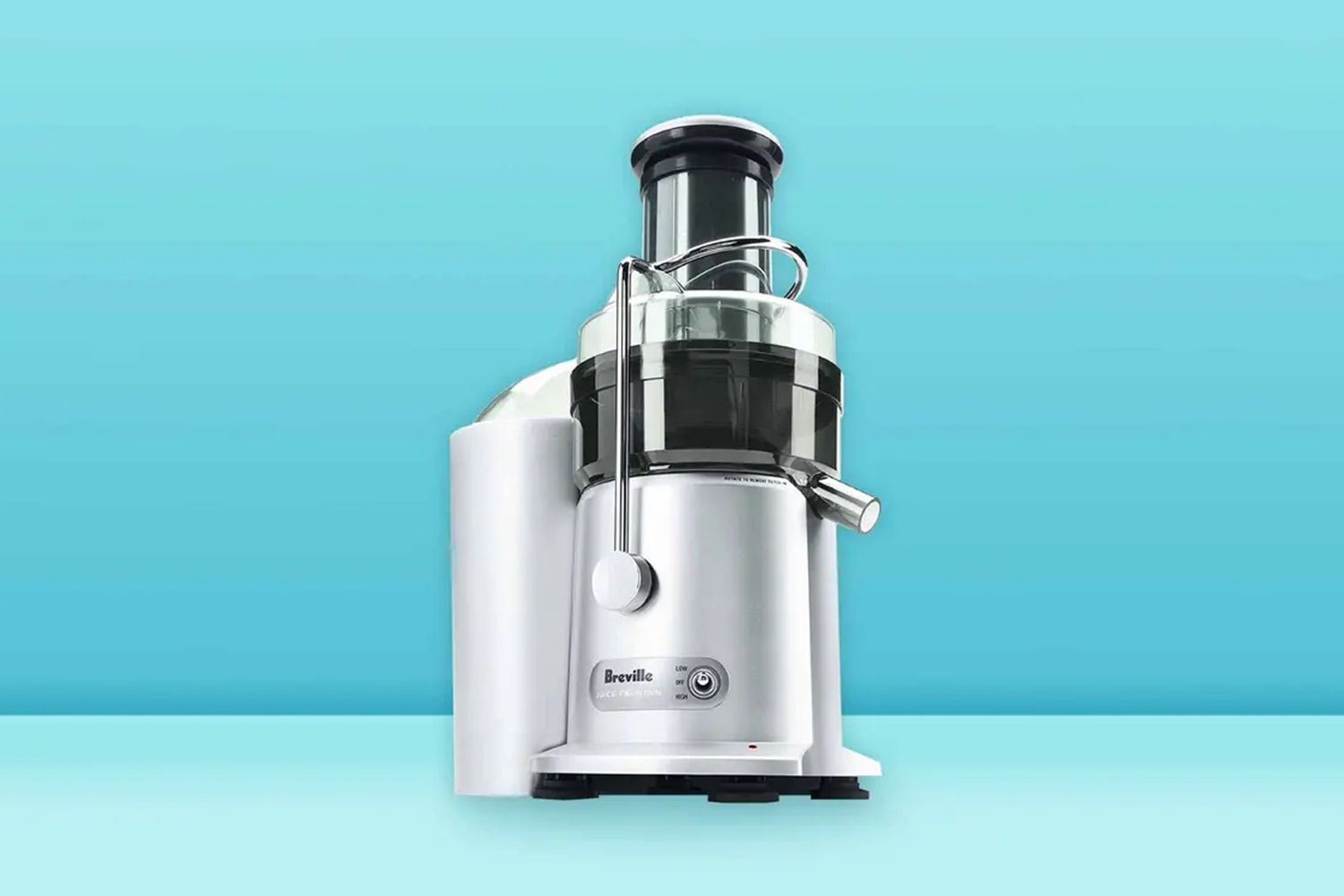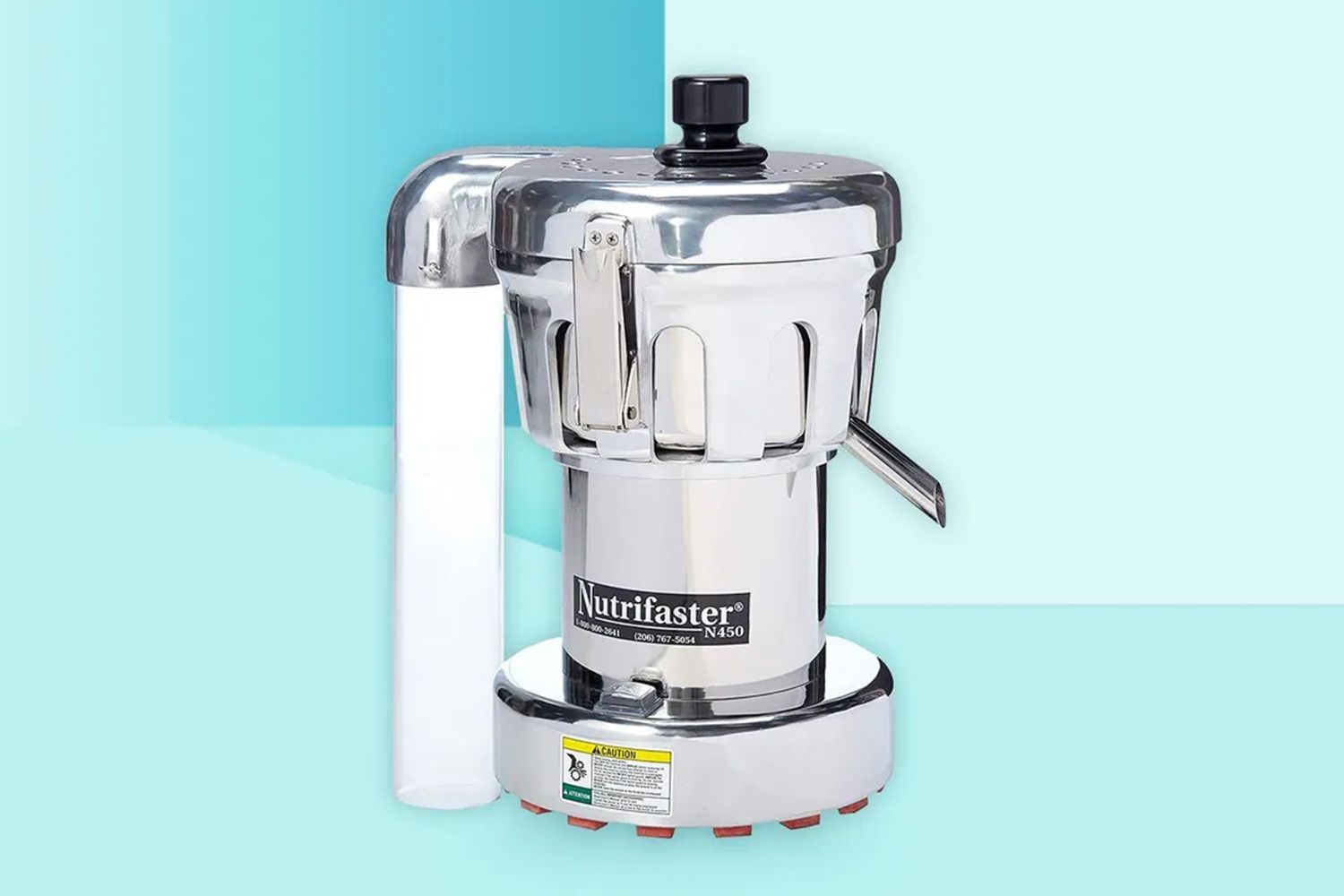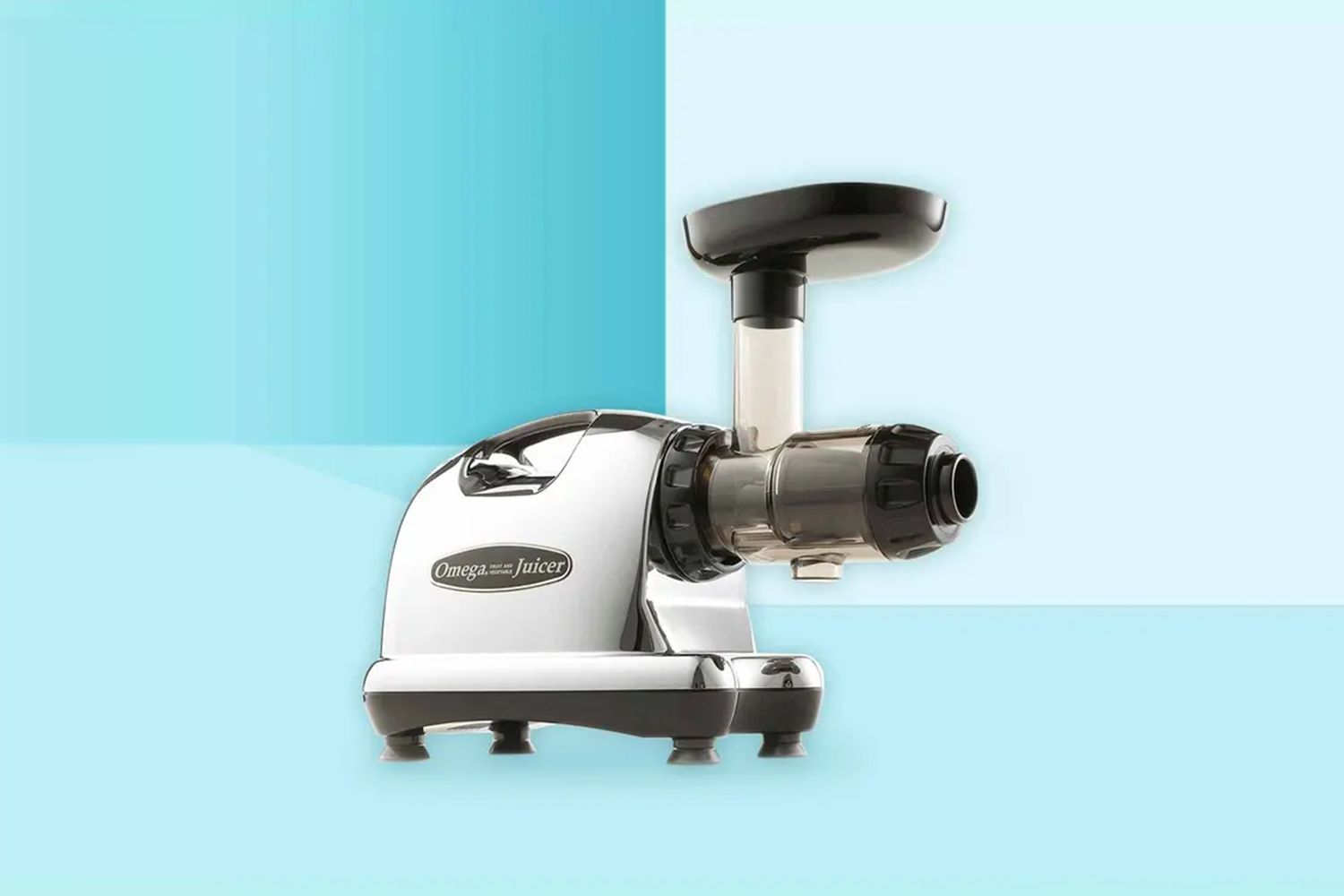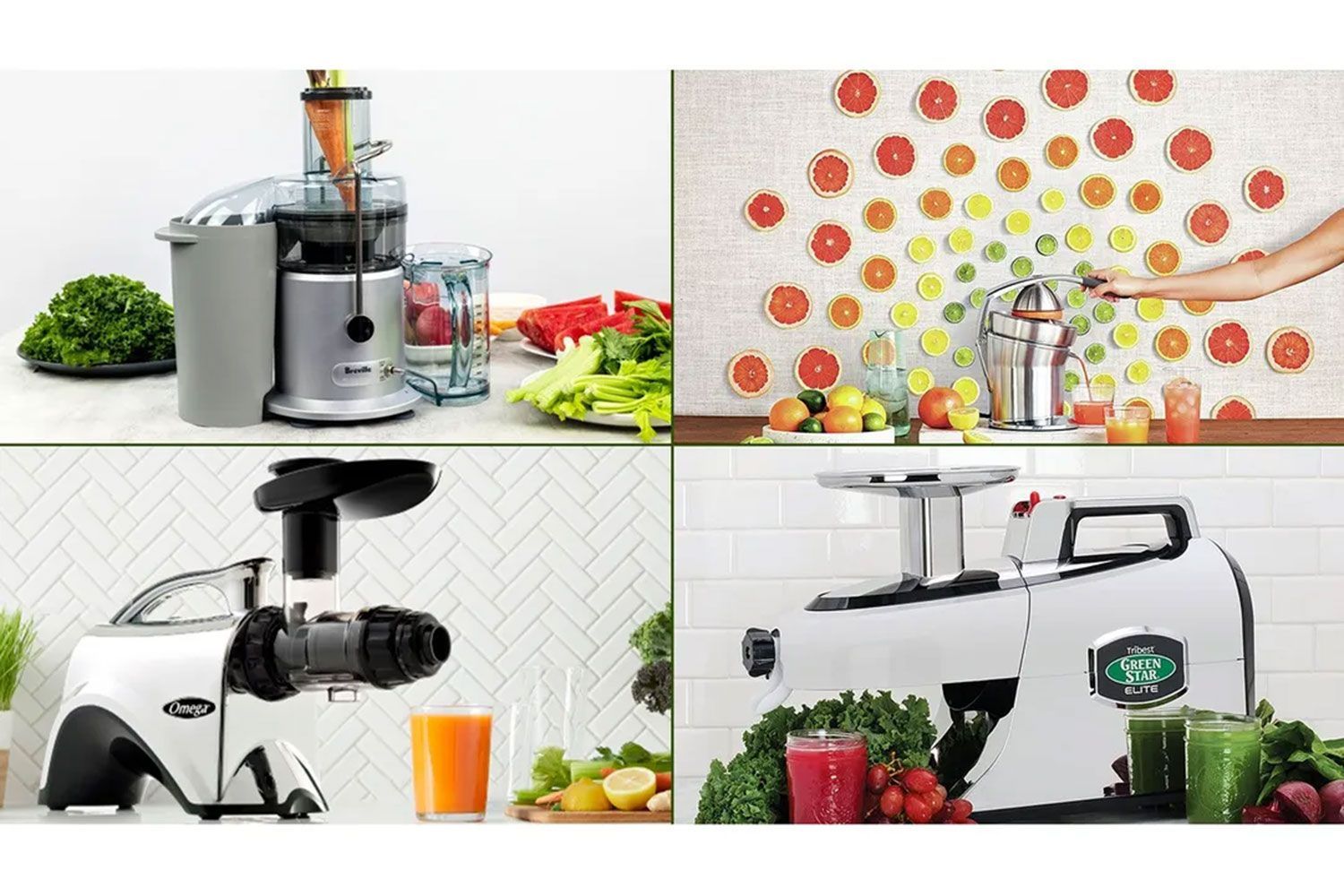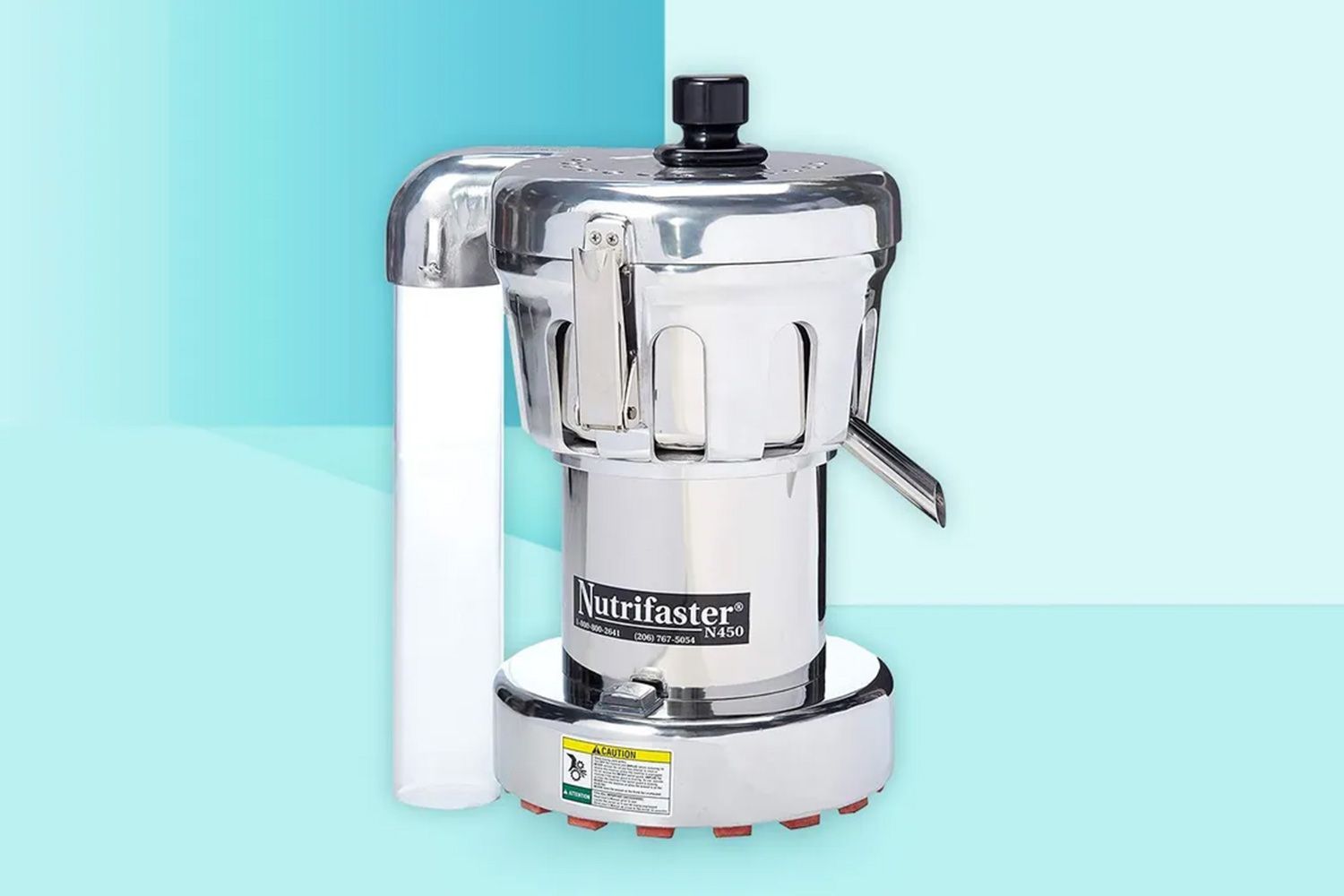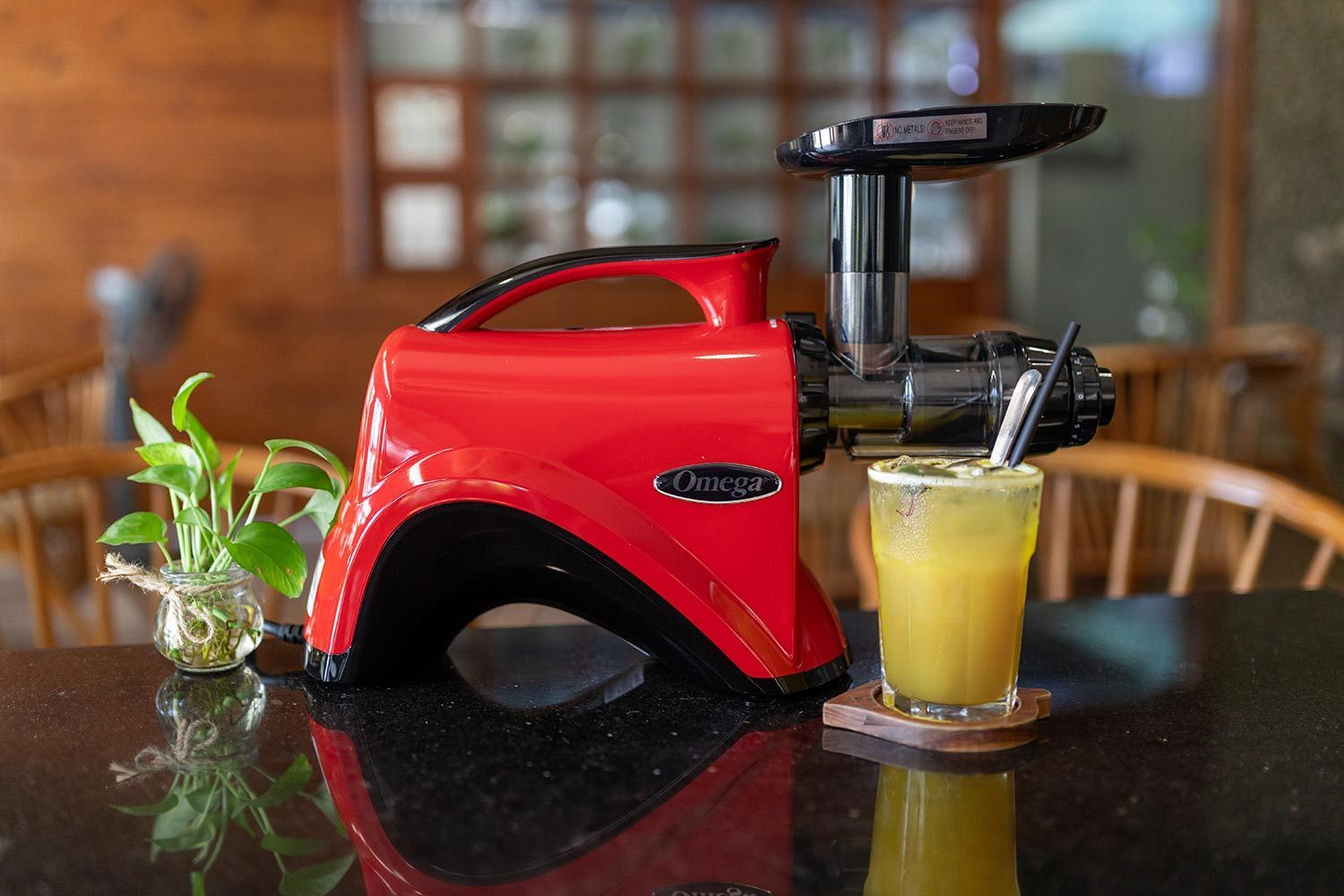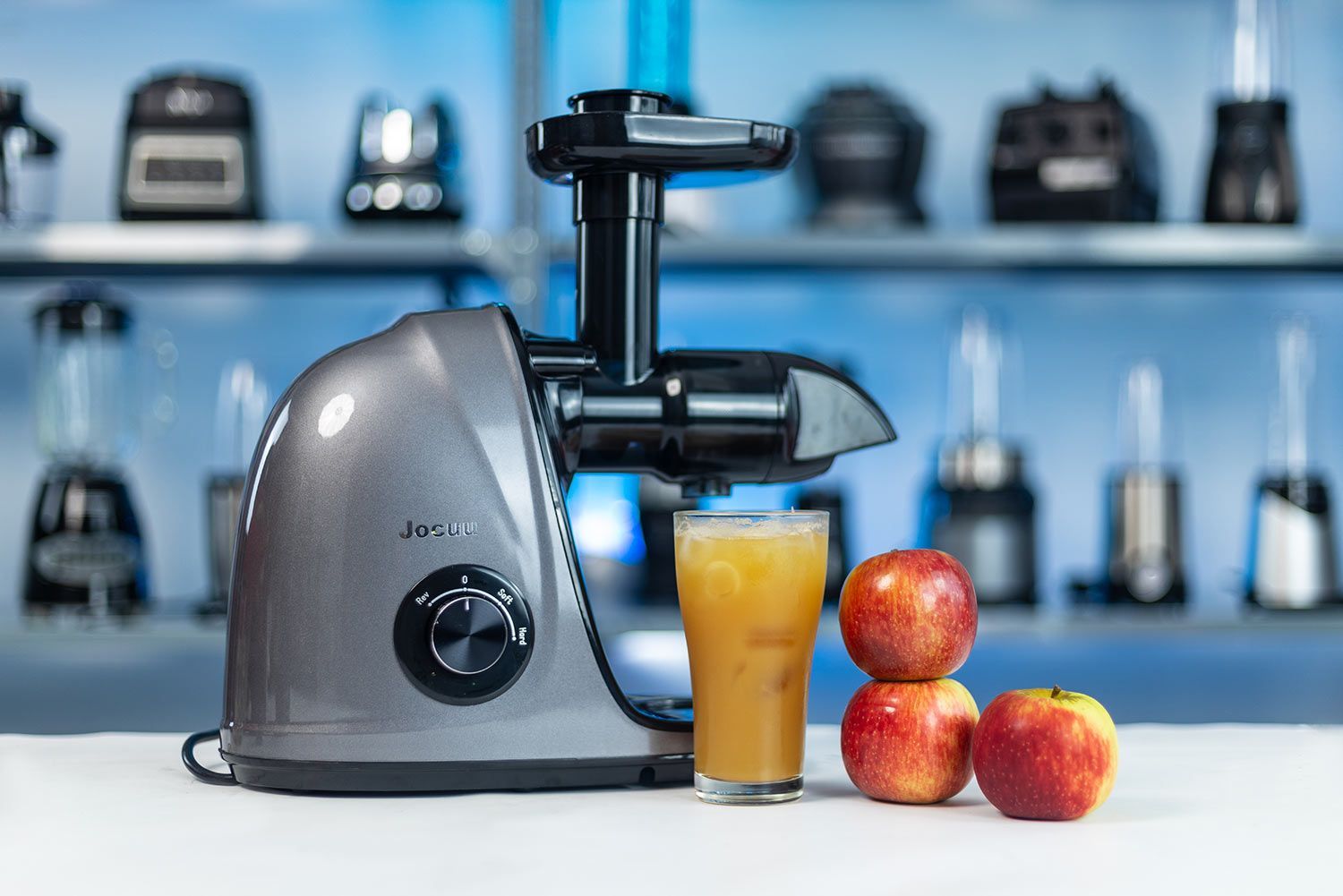The Best Masticating Juicers in 2024 Tested and Reviewed
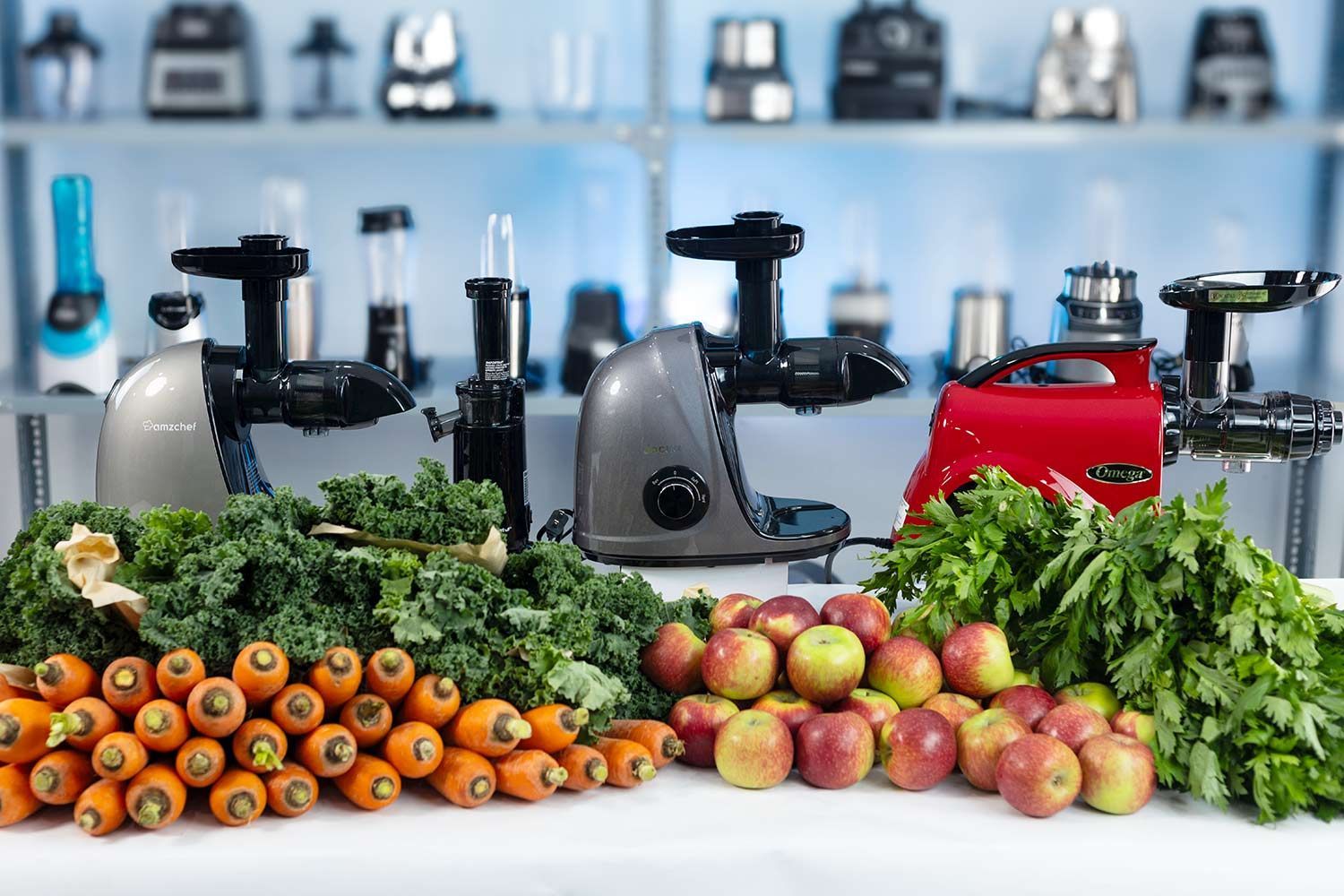
The quest for nutritious beverages has led many to explore the benefits of fresh homemade juices. Whether you're a seasoned enthusiast or a novice to the juicing scene, there are a plethora of masticator models, all promising to take your juice game to the next level.
To find the best masticators, we bought several popular models on our own accord and tested them out. From leafy greens to stubbornly dense fruits and vegetables, we threw it all at them to see which one came out on top. It's not just about performance – we're spilling the tea on their designs and how easy (or not) they are to use.
From speed, juice yield, to ease of use and maintenance, join us as we explore the world of masticators and find the perfect juicer for your household.
The Two Best Masticating Juicers of 2024
Other Masticators We’ve Tested
Which didn’t make it to the recommendation list.
- AMZChef: Not Bad, But Not the Best
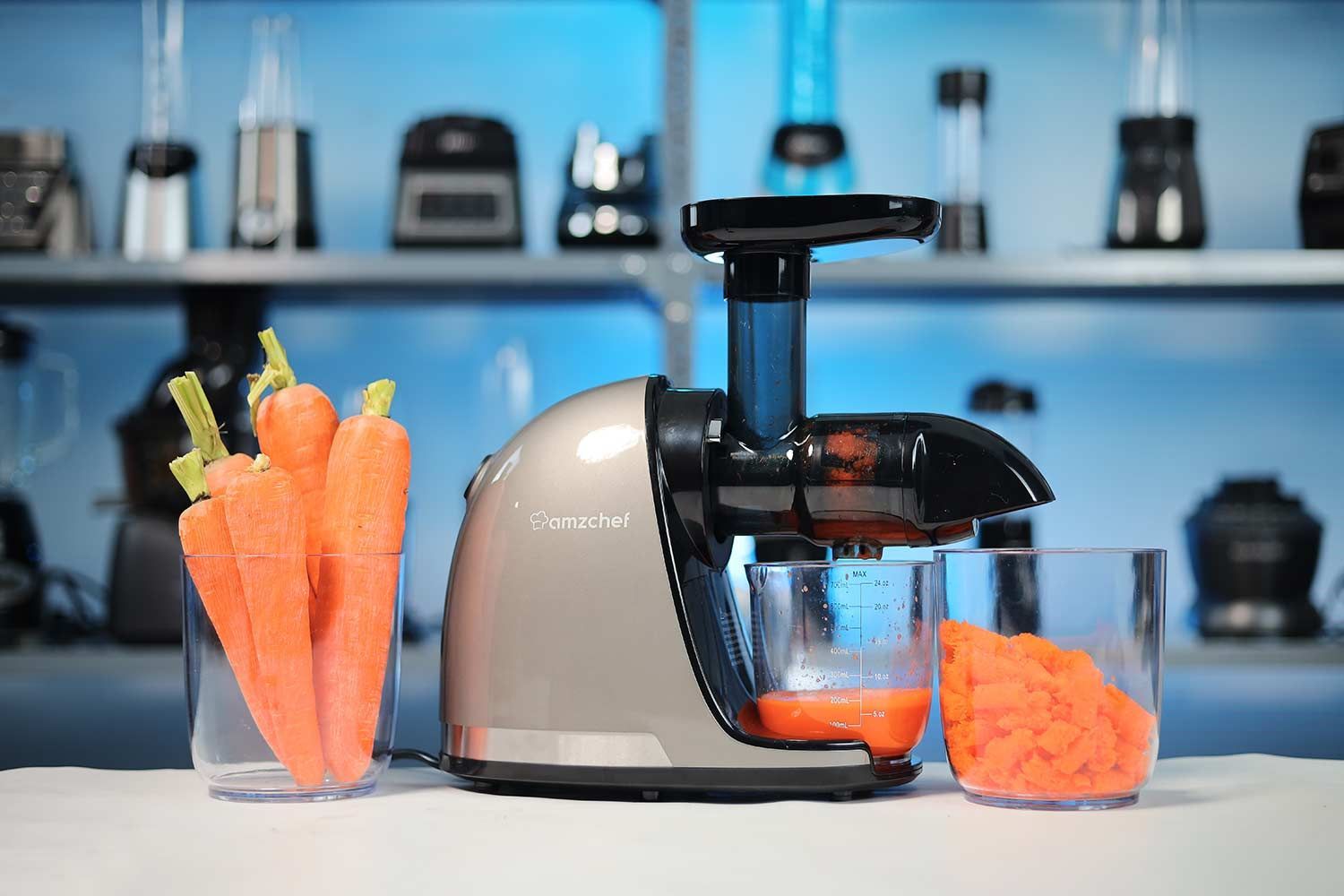
This masticating juicer is similar to the Jocuu above in many ways, even down to how much foam it produced when juicing kale. However, the AMZChef took a little more time than the Jocuu to juice most ingredients except celery. It comes at a slightly higher price too, which puts it at a further disadvantage in comparison.
- Elite Gourmet: May Work As a Personal Kale Juicer
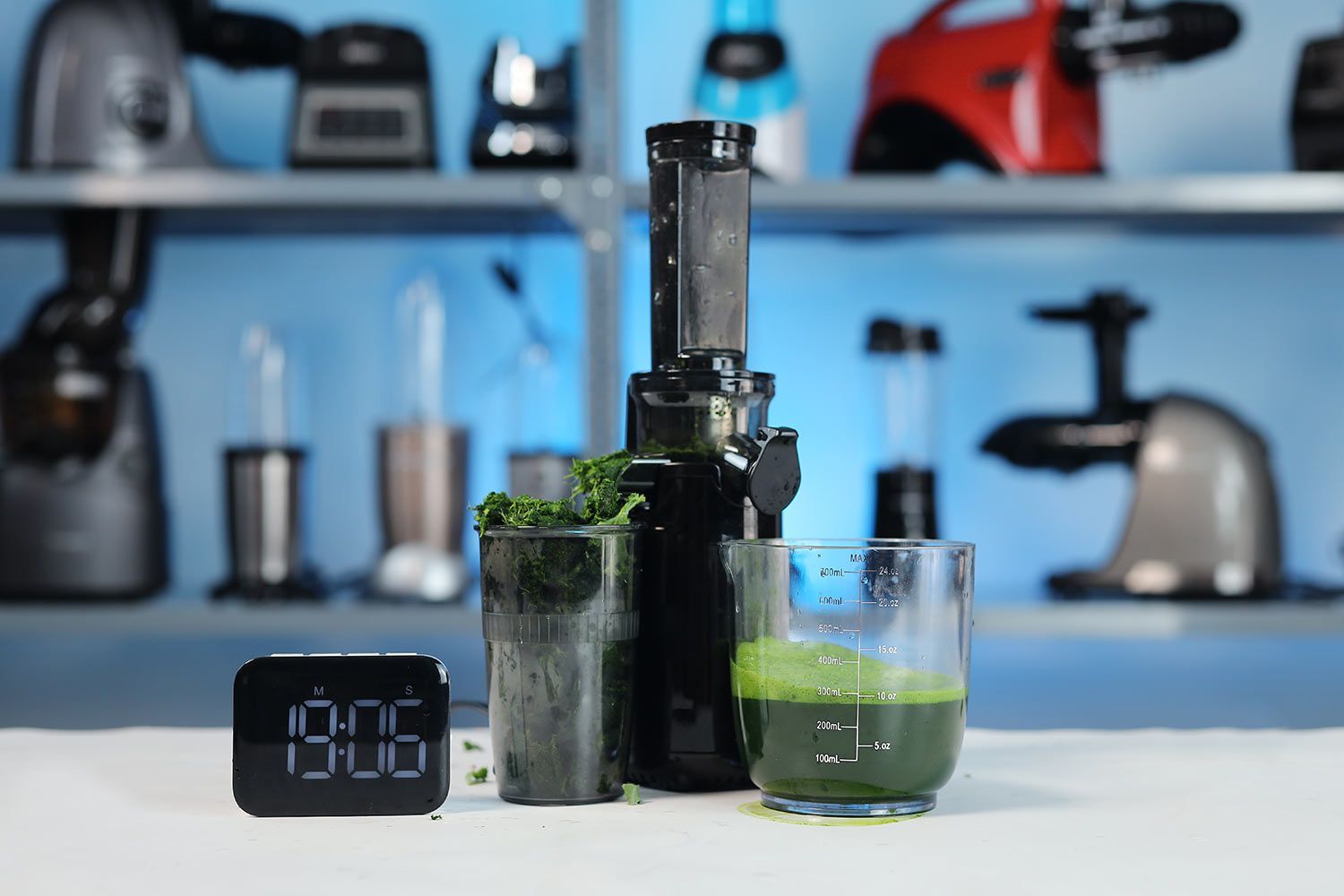
You will get more juice with this vertical masticator than the AMZChef or the Jocuu; however, you will also have to spend more time prepping and juicing. The compact size means it doesn’t require much working or storage space, but that comes at the cost of speed and stability. We don’t recommend this juicer for people who juice often or who make juice for a family. That said, it may work as a personal juicer for those on a budget, especially if you’re juicing mostly leafy greens. The Elite Gourmet took its sweet time in our kale test, but it also produced more juice that’s less foamy than most.
How We Tested and Rated
We conducted tests on masticating juicers, evaluating them based on Performance, Design, and Usability.
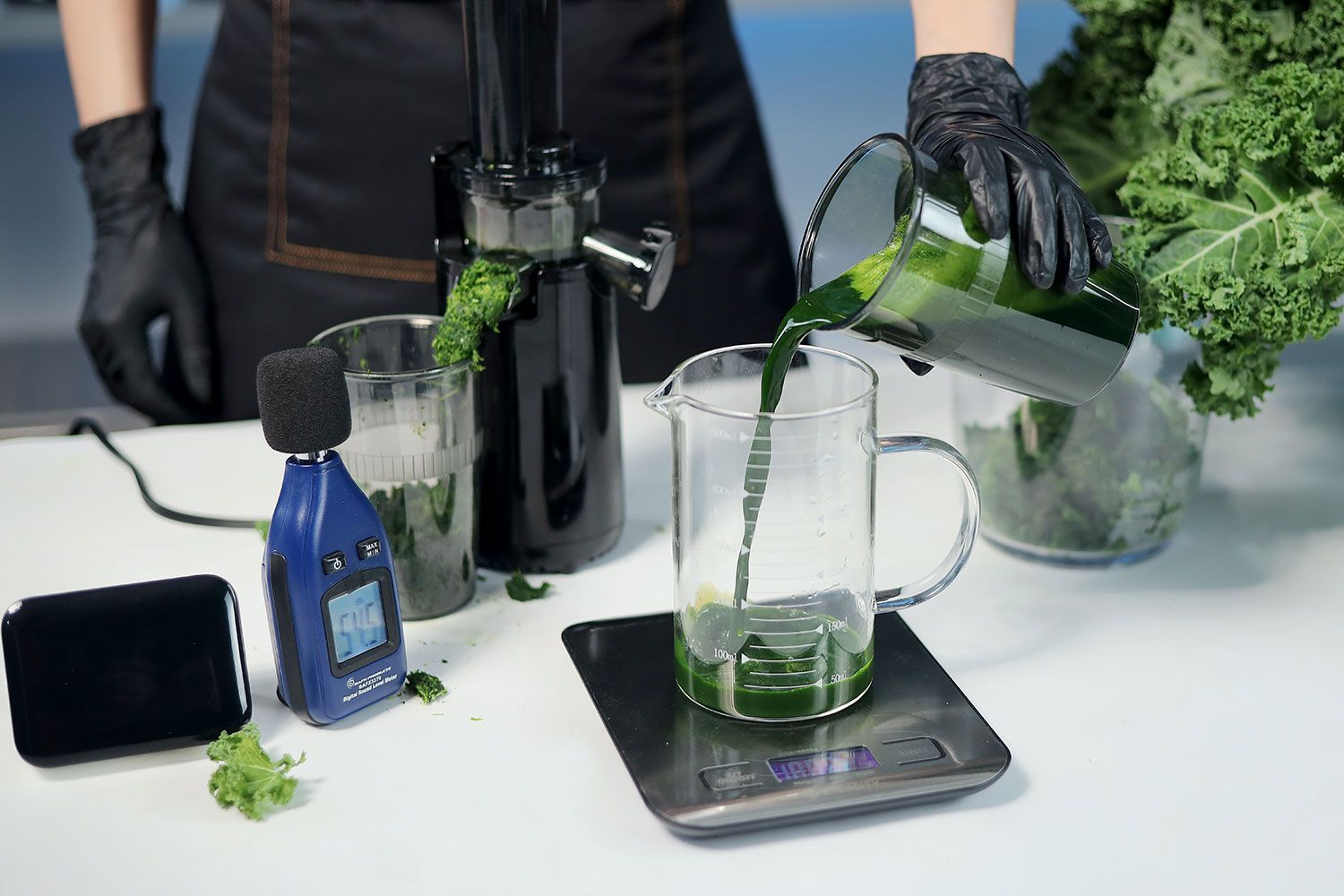
Performance: We conducted individual tests on the juicers, assessing their performance with kale, celery, apples, and carrots. Each testing session involved using 18 ounces (approximately 500 grams) of each ingredient. Ratings were assigned based on the time taken for juicing and the quantity of juice produced. For kale, we also considered the amount of foam generated.
In addition, we measured the sound level each machine produced during operation and in our trial test, the time it took for the juice to completely separate. We noticed that the discrepancies among the juicers were negligible, thus these were not factored in the ratings.
Design: Our evaluation of the design encompassed an examination of the material, build quality, and footprint of each juicer. Additionally, we assessed the construction of the auger to determine if it is engineered for more efficient food cutting.
Usability: For this aspect, we rated the juicers on their ease of assembly, juicing, and cleaning. Points were assigned for convenience features such as reverse functionality and options for adjusting speed or pressure.
How We Picked
Our top picks are the ones with the highest overall scores or the highest scores in a specific category.
All scores are given on a scale of 0 to 10. We use proportionally weighted scores for each component of the evaluation. For juicers, Performance accounts for 40% of the overall score, Design, 25%, and Usability, 35%. Each of the major components has its own sub-components with different score weights.
Should You Buy a Juicer?
The answer depends on a number of factors, but mostly how often you think you’re actually going to use it.
Timewise, it takes 20-30 minutes to make 4 cups of juice, prepping and cleaning time included. The time can be cut short by a few minutes if you use a dishwasher. There’s also the aspect of shopping for groceries. We recommend learning about the benefits and downsides to juicing before getting into it.
The idea of having fresh juice at the convenience of your own countertop can be appealing. However, if you have a history of purchasing and abandoning trendy appliances after a few months, it may be a better idea to just buy your juice from a juice bar or vendor. It’s faster, usually more delicious, and may actually be cheaper than buying an expensive juicer and not using it. Plus, you won’t have another bulky machine staring at you, questioning your life choices every time you open your cupboard.
If you decide to give it a go and make juicing a daily or even weekly part of your routine, investing in a juicer will be worthwhile. A good-quality, durable one can last for years and used often, it pays for itself within 6 months. Sure, you can make juice using a blender and cheesecloth the way you can cook rice in the microwave oven, but every Asian family I know owns at least one rice cooker.
FAQ
"Masticating" in the context of juicing refers to the process of grinding, chewing, or crushing fruits and vegetables to extract juice. Masticating juicers slowly crush and grind the food, as opposed to centrifugal juicers, which cut and spin at a high speed to extract juice.
Due to their juicing mechanism, which separates juice by slowly pressing the fruits or vegetables, masticating juicers are also known as cold-press juicers or slow juicers.
Masticating juicers operate at a slower speed and produce less heat during operation compared to centrifugal juicers. This potentially minimizes oxidation and degradation of the juice; however, we could not find any research to confirm this.
In our experience using both types of juicers, however, masticators are more versatile and efficient at juicing a wide variety of fruits and vegetables than centrifuges. They are especially better at extracting juice from leafy greens.
We also found that masticators are easier to clean compared to centrifugal juicers. The former typically has only one small mesh, which takes 30-40 seconds to wash by hand. The latter, on the other hand, comes with a whole disc of tiny teeth surrounded by a large mesh, and it’s not uncommon to find small seeds and fibers stuck hard inside the nooks and crannies, which requires some effort to get rid of.
Our Expertise
The testers and reviewers at Shouldit, including Anh Ngo, Lap Vo, and Nguyen Ntk have been separately researching and testing different types of juicers and blenders since 2018, although our individual experience with these machines started much earlier at our homes or office canteens. We have also been using these machines to test and develop our nutritionist-approved juice recipes. All this collective experience gave us a first-hand understanding of what to look for, and what to look out for, in a juicer.

This review article is the result of hours of collaborative work. Numerous pounds of carrots, apples, kale, and celery were used—first for the trial tests, then the final tests. They were then sorted, prepped, and weighed, making sure the quality and quantity were consistent. We assembled, used, and cleaned our juicers more times during our test weeks than a typical user uses theirs in two months.
While some personal bias was inevitable, it was minimized with our standardized test process. We take pride in our efforts to bring you the most honest, practical, and subjective juicer reviews possible.
